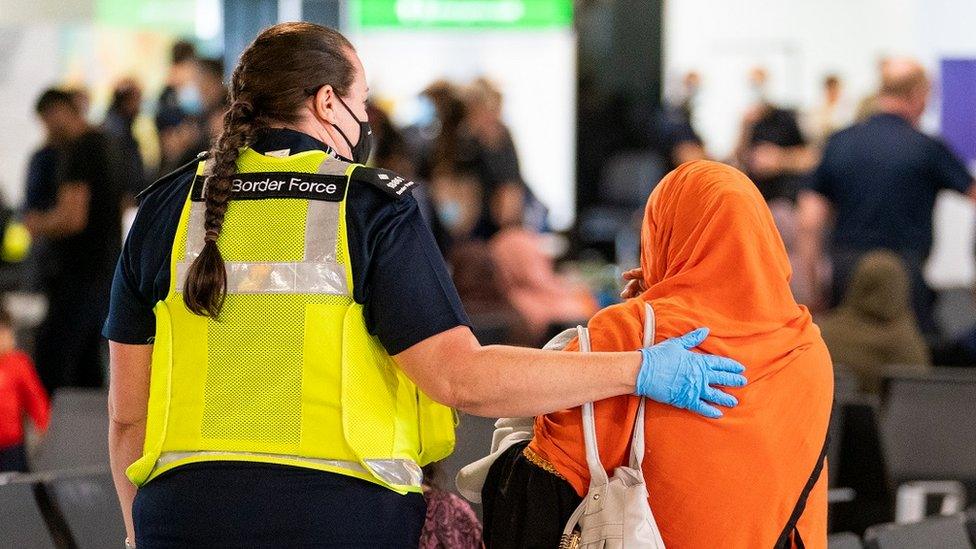Afghan refugees to be moved out of hotels under new government plans
- Published
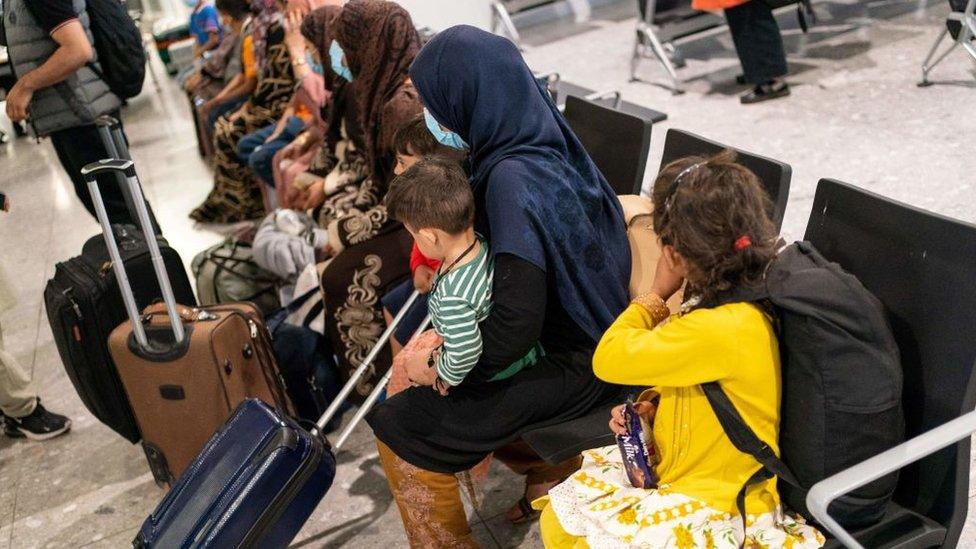
A new plan to move Afghan refugees out of hotels and into permanent homes in the UK has been announced.
Afghans in "bridging hotels" will be written to and given at least three months' notice to move, Veterans Minister Johnny Mercer said.
Labour said the government was "serving eviction notices" with no guarantee of suitable housing for families.
Mr Mercer said new people arriving from Afghanistan under government schemes would not be housed in hotels.
Speaking in the Commons, he said the new plan meant Afghan refugees living in hotels who turn down an offer of housing would not receive a second offer.
The new plan applies to Afghans who have arrived in the UK under two resettlement schemes: the Afghan Citizens Resettlement Scheme (ACRS), which focuses on women, children and religious minorities, and the Afghan Relocations and Assistance Policy (ARAP), for Afghans who worked for the British military and UK government.
In August 2021, thousands of people fled Afghanistan after the Taliban took back control of the country. Many refugees have since been living in hotels across the UK.
Mr Mercer said the thousands of people who left Afghanistan were housed in "bridging hotels" which were never meant to be permanent.
He added that of the 24,500 people now living in the UK under the two resettlement schemes, about 8,000 remained in hotels, with about half of those being children - costing £1m a day.
The government says that Afghans make up a fifth of all people living in bridging hotels.
Mr Mercer said the long-term residency in hotels has "prevented some Afghans" from putting down roots, committing to employment and integrating into communities, as well as creating uncertainty.
But campaigners said the new policy would cause anxiety and upheaval for refugees who had already experienced trauma, and could leave Afghans at risk of becoming homeless.
After its withdrawal from Afghanistan, the UK pledged to resettle up to 20,000 more vulnerable Afghans under the ACRS.
The government will begin writing to families and individuals housed in hotels at the end of April, giving them "at least three months' notice" before they are forced out, Mr Mercer told the Commons.
He promised "generous" support, with trained staff based at hotels to provide advice - including Home Office staff and charity workers.
The veterans minister said £35m of funding would help councils provide increased support and the local authority housing fund would be expanded by £250m.
The increased fund for local authorities will help councils to source homes for Afghan refugees currently in hotels, the government says.
Mr Mercer noted there was a "national duty" owed to Afghan refugees who helped British forces during the war.
He added that "in return, we do expect families to help themselves" and where an offer of accommodation was turned down, "another will now not be forthcoming".
He said: "At a time when there are many pressures on the taxpayer and the housing market, it is not right that people can choose to stay in hotels when other perfectly suitable accommodation is available."
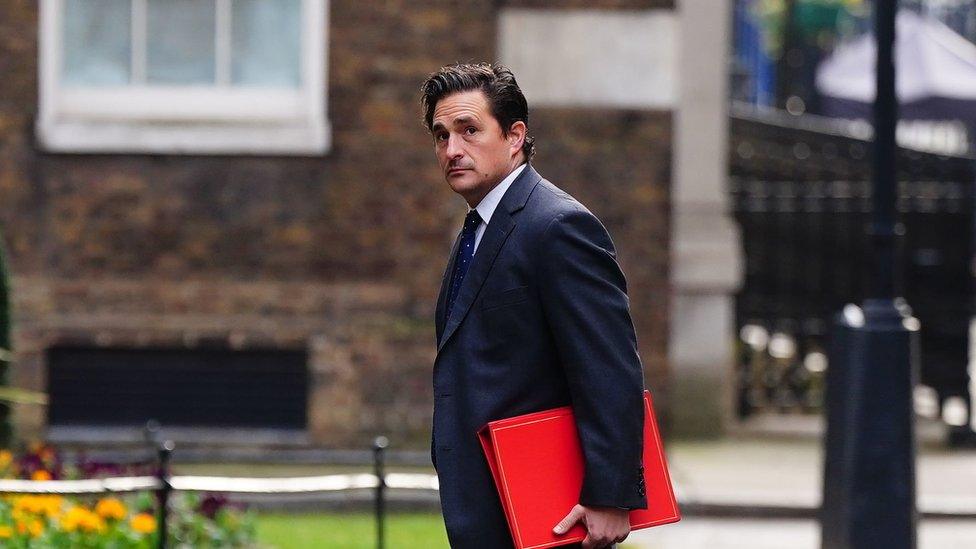
Veterans Minister Johnny Mercer announced the plan in the Commons
Enver Solomon from the Refugee Council said the government's plan risked people being left "homeless and destitute on the streets of Britain".
He said: "This is not how those who were promised a warm welcome in the UK should be treated."
Government plans to resettle Afghans who had worked with the UK during the war were initially named Operation Warm Welcome.
Mr Solomon added: "To expect councils to suddenly move them out of hotels by putting pressure on Afghan families risks causing great misery and anxiety for those who have already experienced trauma and upheaval."
Labour called on the government to ensure no Afghans would be left homeless.
Shadow defence secretary John Healey accused the government of "serving eviction notices on 8,000 Afghans - half of whom are children - with no guarantee they will be offered a suitable, settled place to live".
He said: "Never mind 'Operation Warm Welcome', never mind the warm words from the minister today. He has confirmed the government is giving them the cold shoulder."
Liberal Democrat Home Affairs spokesperson Alistair Carmichael the public would "have no faith in this initiative".
"They have proven time and time again they cannot treat refugees, including women and young children, with the respect they deserve."
Lib Dem MP Munira Wilson said the government's promise of help for those who remained in danger in Afghanistan was "utterly hollow".
She said she had repeatedly raised the case of five British children who were still "living in hiding" in Kabul and had been "abandoned" by the government.
The Local Government Association (LGA) said councils would need extra resources to help find and fund the accommodation or there would be a risk of a further increase in homelessness.
Related topics
- Published5 August 2022
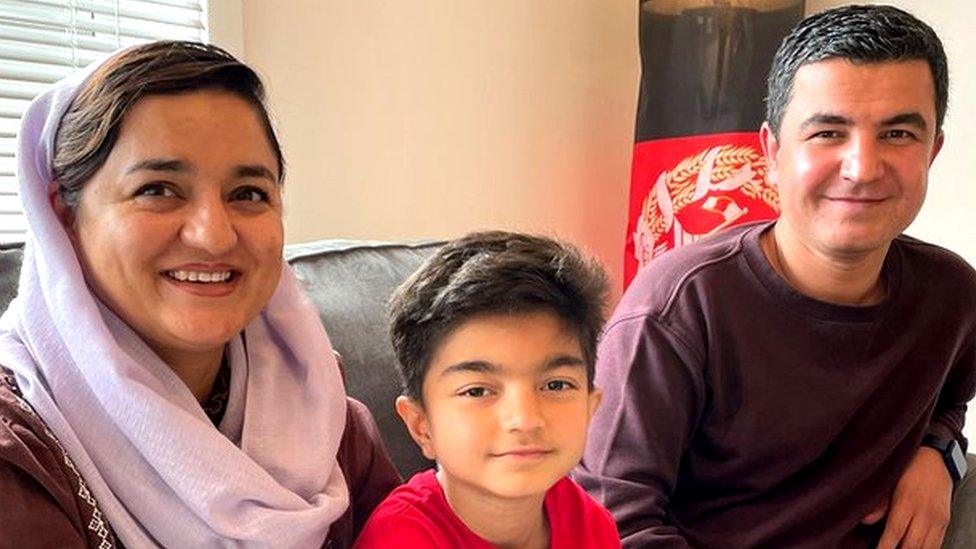
- Published12 January 2023
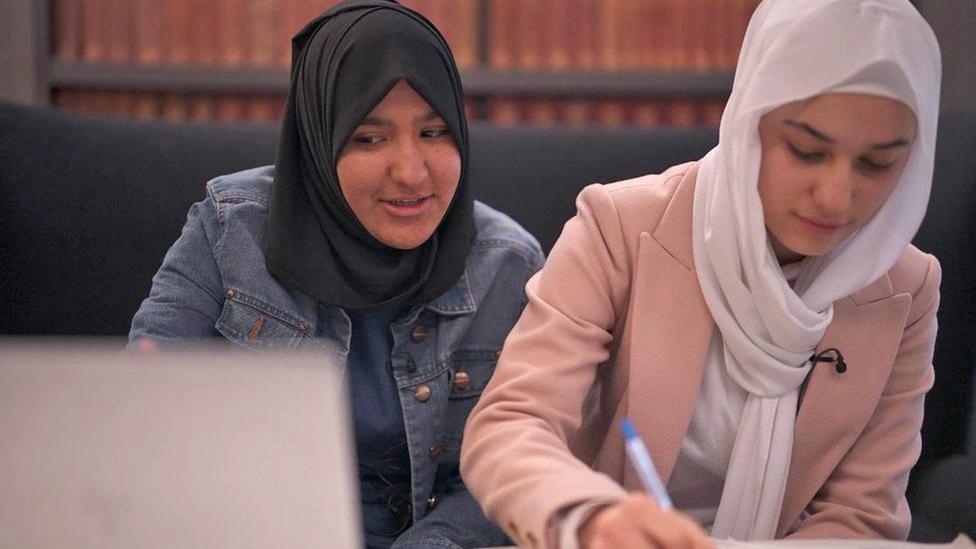
- Published3 August 2022
